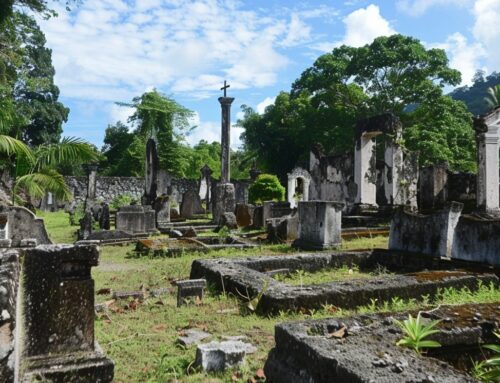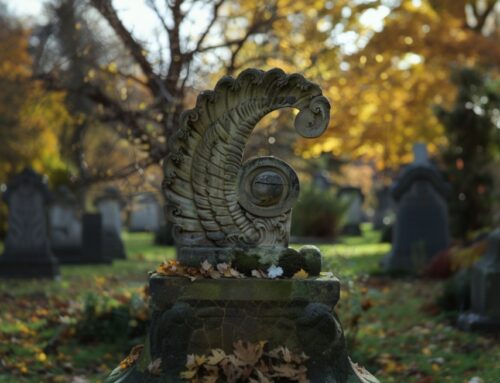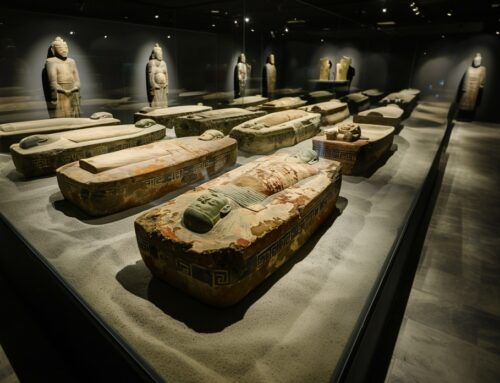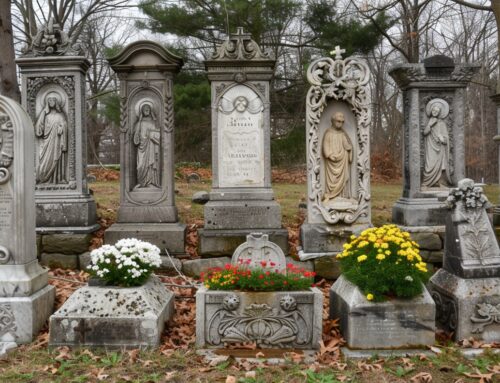Cemeteries in Paterson, NJ, serve as silent guardians of our past, encapsulating the rich tapestry of history and heritage that shapes our community. These sacred grounds offer more than a final resting place for loved ones; they stand as monuments to the lives and stories that have woven the fabric of our society. By exploring the role these spaces play in preserving our collective memory, we gain insight into the intricate relationship between the past and the present. Join us as we delve into how cemeteries safeguard our heritage, inviting you to uncover the profound impact they have on our understanding and appreciation of history. Continue reading to discover the timeless connections that cemeteries foster between generations, celebrating the legacy of those who came before us.
How Cemeteries Safeguard Historical Legacies
Cemeteries are often perceived merely as resting places for the departed, yet their role in safeguarding historical legacies is profound and multifaceted. Each headstone, monument, and mausoleum stands as a tangible link to individual lives that have shaped the civic, cultural, and social fabric of our communities. These hallowed grounds function as open-air museums, where every inscription tells a story of triumph, tragedy, love, and legacy.
Beyond individual markers, cemeteries encapsulate broader historical narratives, preserving the memory of pivotal events and collective experiences. Through the preservation of historic gravesites and the stories they contain, cemeteries offer invaluable insights into the past, fostering a deeper understanding of the forces that have shaped our present. They embody the continuity of history, serving not only as sites of personal remembrance but also as locales where the community can come together to honor its collective heritage.
In this way, cemeteries play a critical role in maintaining the continuity of memory, ensuring that future generations can learn from and feel connected to their roots. They guard the essence of historical legacies, making the past accessible and relatable to all who seek to uncover the stories that have led us to where we are today.
The Importance of Cemeteries in Heritage Preservation
 The importance of cemeteries in heritage preservation cannot be overstated. As repositories of cultural and historical wealth, they play a crucial role in connecting us with our ancestry and providing insights into the societal norms, values, and events of the past. Cemeteries offer a physical dimension to history, grounding it in the real-world experiences of individuals who lived through the epochs and events we study in books. They are spaces where the collective memory of a community is anchored, preserving not only personal histories but also the material culture of different eras through monuments, epitaphs, and architectural styles, which serve as a reflection of changing attitudes toward death, commemoration, and the afterlife.
The importance of cemeteries in heritage preservation cannot be overstated. As repositories of cultural and historical wealth, they play a crucial role in connecting us with our ancestry and providing insights into the societal norms, values, and events of the past. Cemeteries offer a physical dimension to history, grounding it in the real-world experiences of individuals who lived through the epochs and events we study in books. They are spaces where the collective memory of a community is anchored, preserving not only personal histories but also the material culture of different eras through monuments, epitaphs, and architectural styles, which serve as a reflection of changing attitudes toward death, commemoration, and the afterlife.
Furthermore, cemeteries are essential in the field of genealogical research, providing vital records that enable individuals to trace lineage and understand their personal connection to the broader narrative of history. They offer unique educational opportunities, acting as outdoor classrooms that can teach us about art, history, and nature conservation. By maintaining the resting places of historical figures, veterans, and community leaders, cemeteries ensure that the achievements and sacrifices that shaped the present are remembered and honored. Thus, they are pivotal in preserving the tangible and intangible heritage that contributes to our sense of identity and belonging.
Cemeteries as Guardians of Community History
Cemeteries serve as guardians of community history, standing testament to the lives and stories that have collectively shaped the identity of a place. Within their gates, every marker and mausoleum tells a part of a larger narrative, intertwining personal histories with the broader tapestry of community heritage. These sacred sites hold the memories of pioneers, leaders, and citizens who contributed to the community’s development, offering a unique perspective on the evolution of societal norms and values over time.
The importance of these sanctuaries extends beyond individual remembrance, embodying the collective memory and shared heritage of a community. They remind us of the successes and struggles of past generations, fostering a sense of continuity and belonging among the living. Cemeteries also serve as spaces for reflection and learning, where community members and visitors can gain insights into the historical context that has shaped the environment around them.
Moreover, by hosting commemorative events and educational tours, cemeteries actively engage with the community, reinforcing their role as custodians of local history. Through these interactions, they not only preserve the past but also enliven it, ensuring that the legacy of the community is passed down through generations. In this way, cemeteries are more than just final resting places; they are vibrant keepers of history, playing a critical role in the ongoing narrative of the communities they serve.
In understanding the pivotal role that cemeteries play in preserving history and heritage, it becomes clear how cemeteries in Paterson, NJ, specifically, serve as vital links to our past and guardians of our collective memory. Fair Lawn Memorial Cemetery & Mausoleum stands at the forefront of these efforts, ensuring that the stories, values, and legacies of those who came before us are preserved for future generations to learn from and honor. By embracing the importance of these sacred spaces, we can foster a deeper connection to our community’s history and heritage. For more information on how Fair Lawn Memorial Cemetery & Mausoleum contributes to this noble cause, we invite you to reach out and join us in the meaningful work of heritage preservation.





